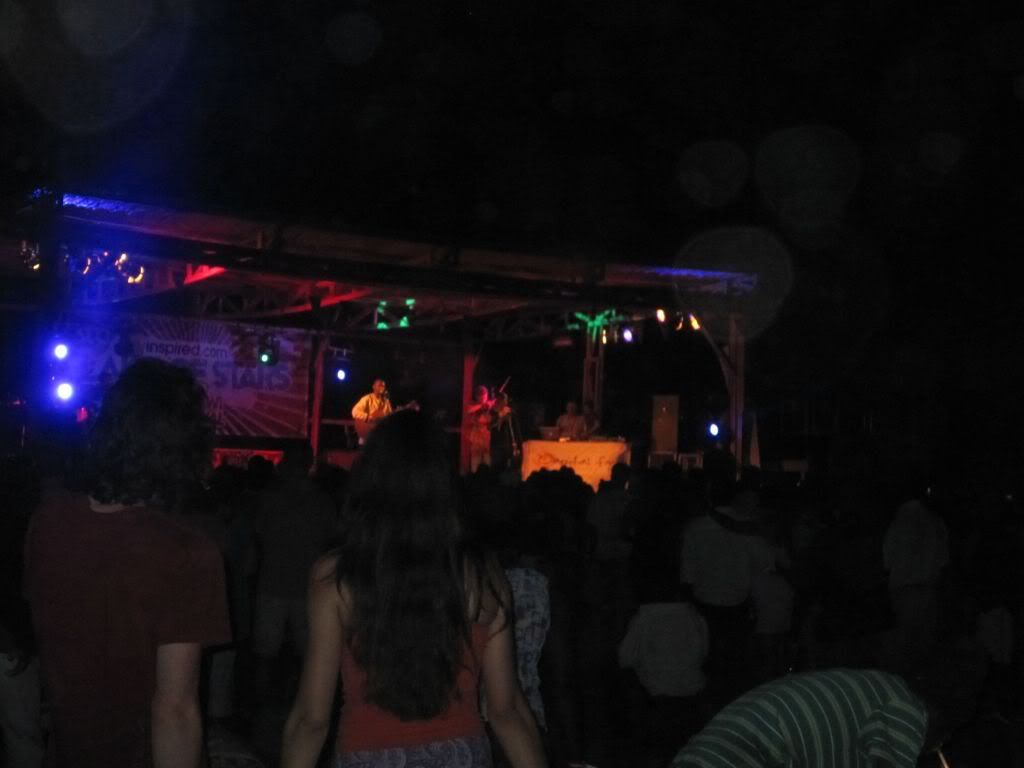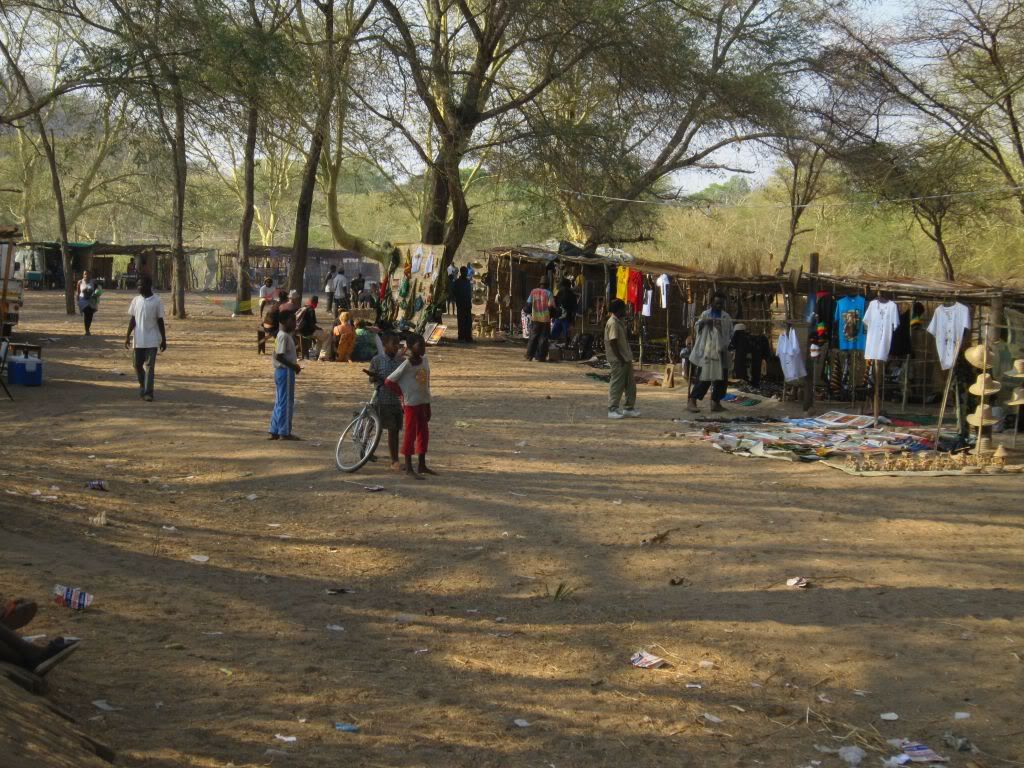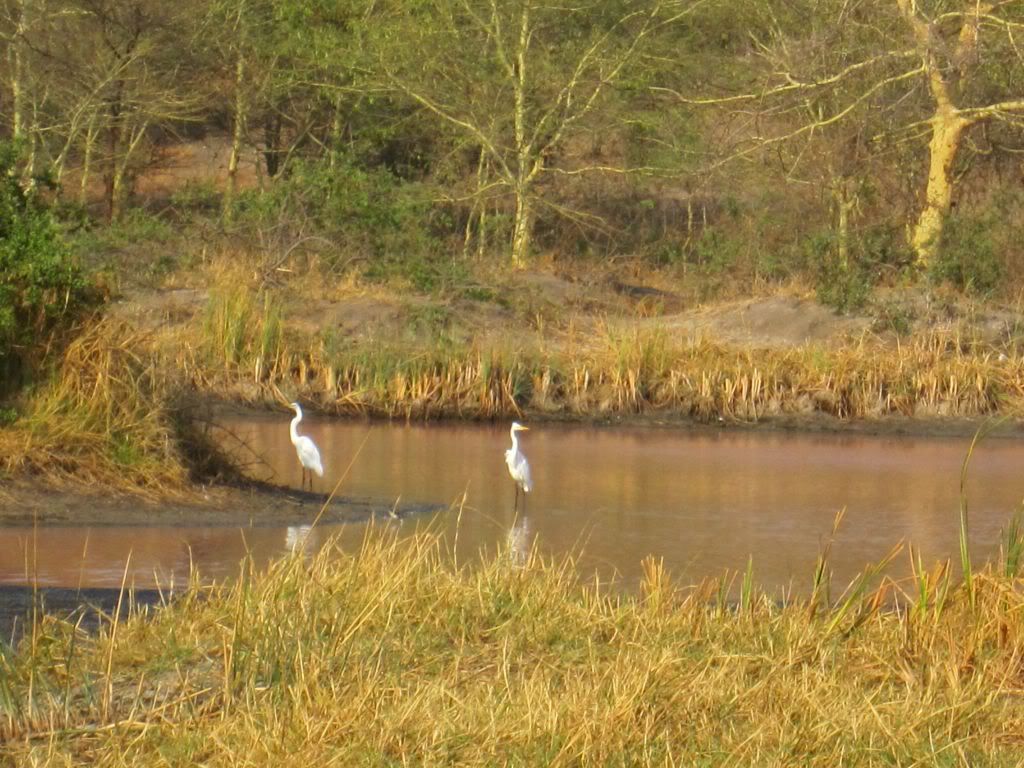
There may be better ways to spend a weekend than mellowing out on the shores of Lake Malawi listening to good music, but right now I can’t think of any. The water was warm, the weather hot, the nights balmy, the company good, and the craic great. The Lake of Stars music festival has established itself as one of the most exciting music festivals in Africa in recent years and the location – on the shores of the lake on a broad stretch of beach beside Nkpola Lodge and campsite could hardly be bettered. This year’s festival was opened by the Minister for Tourism who sky-dived onto the beach for the opening ceremony and was attended by c. 3,000 revelers.
Stars of the Saturday night line-up of the 3 day festival were the Noisettes and their lead singer Shingai Shoniwa, whose dynamic stage presence owed much to Diana Ross and Grace Jones and their music something to Jimmy Hendrix and Rory Gallagher. It would be interesting to know more about how the Malawian members of the audience, coming from such a male-dominated society, reacted to such a dominant female presence but the overall audience response was rapturous.
Other headline acts included Oliver Mtukudzi (Zimbabwe’s answer to the ageless Leonard Cohen?) and Peter Mawanga who seemed rather self-obsessed and moralizing on stage. Unfortunately two local groups, the black Missionaries and Lucius Banda, didn’t play because of a dispute over expenses. In general there was music for all ages and tastes although it was notable that the racial mix of the audience and those most actively dancing varied from act to act.

View from the back of the stage area!
Holding a music festival in one of the poorest (Human Development index ranking of 160) and most unequal societies (UN GINI index ranking of 62) in the world may seem to be in poor taste to some, as few local people will have been able to afford the tickets at c. €35 even if the overall audience mix seemed c. 50:50 black and mzungu (white). As recently as 2001 a popular young musician and national icon, Evison Matafale, died in police custody after he had been critical of then President Muluzi; and the relationship between the arts, freedom of expression, and the Government of the day has often not been an easy one.

Market at the entrance to the concert
Although now a multi-party democracy, the political repression of the President Banda years has been followed by the economic depression of subsequent governments which instituted neo-liberal market “reforms” and eliminated food subsidies (at IMF/World Bank insistence) which contributed to the manifold increase in food prices and widespread malnutrition.
Malawi also has one of the most serious public health crises in the world with AIDS, TB, Malaria and many other tropical diseases rife. Other problems can be traced to poor childhood nutrition with stunted growth and ongoing medical complications arising from poor nutrition in the crucial early months and years of development.
Despite this, the Government has mandated the opening of a dialysis unit (after two earlier abortive attempts) in Queen Elizabeth Central Hospital, Blantyre despite the fact that it will absorb c. 20% of the hospital pharmacy budget for c. 20 patients in a hospital with 1,000 beds and up to 2,000 in-patients at any one time (the “extras” sleeping under beds and in corridors or wherever possible).
Senior aid figures opine that resources would be far better targeted at infant nutrition programmes and Ireland has recently announced its continued support for a programme to improve agricultural productivity through improved inputs (e.g. seeds) and farming methods.
Malawi is one of the most densely populated countries in Africa, with a population of roughly 14 Million – similar to Mozambique in an area one tenth the size. This has resulted in huge pressures on available land and water resources with deforestation, soil erosion, and over-fishing chronic and worsening problems.

Some of the locals were unimpressed by the music on offer!
Economic development is hindered by a relative lack of mineral resources and a political system which has historically favoured cronyism amongst the political and economic elite. Thus the railway network is neglected whilst a lot of resources are pumped into the road system allegedly because of the close links between the political elite and road haulage companies.
Chronic and recurrent diesel and petrol shortages exacerbate the problems confronting businesses in the region, while the overstretched ESCOM struggles to meet electricity demand, with regular scheduled and unscheduled power outages, forcing many businesses and homes to install expensive and fuel-inefficient backup generators. Wind and Solar power sources are unexploited on any scale. Even in large towns like Blantyre, water shortages are a routine feature of daily life and most homes and businesses which can afford it rely on reserve water tanks.
Tourism is still in its infancy, and Malawi does not feature on most lists of key countries for wildlife, activity or more general tourism. Yet its National Parks are increasingly well stocked with game, with local co-operatives now gaining a share of revenue and helping to reduce the incidence of poaching. Lake Malawi is the most bio-diverse lake in the world with over 1000 species of fish (mostly cichlids) identified, and that before its remarkable depths of up to 700M have been fully explored.
Bilharzia (schistosomiasis) is present in many locations in the lake (chiefly shallow, marshy, stagnant areas near human habitation) but can be effectively treated by a single dose of praziquantel given c. 3 months after exposure. The presence of Crocodiles and Hippos in some locations can be a more pressing concern but can be avoided with local knowledge. (We were advised to leave the water by 5.00pm at one beech as the local Hippos crossed that bay after dark. Smaller crocs are generally not regarded as a threat although we did see one man with what looked like a (healed) crocodile bite scar on his leg.)
Lake Malawi is part of the Great Rift Valley stretching from Ethiopia down to South Africa and the cradle of almost all known instances of early human kind. Fossilised evidence of pre-human footprints date to 3.6 Million years ago and Homo Rudolfenis remains – dated c. 2.5 Million years ago – have been found at the northern end of lake Malawi at Karonga. Some Bantu migrations have been traced as far back as c. 1,000 AD but slavery still occurred until the late 19th Century and its abolition is one of the more positive legacies of colonialism.
Some might argue that tourism is the more modern form of colonialism but there is no doubt that Malawi’s current economic strategy is to obtain foreign currency wherever they can get it. Whether tourism will exacerbate the current extreme rich/poor differentiation or result in a net benefit to the entire society is something that the Malawian people and their political system must ultimately determine for themselves.
Certainly the Minister for Tourism, in his welcome to the festival goers, was in no doubt about the value of music events such as the Lake of Stars, to enhance his country’s cultural standing in the eyes of the international music community and promoting the “Malawian tourism product”. Hopefully his government has learned the lesson that silencing dissenting artists and musicians voices is not the way to further these objectives.


